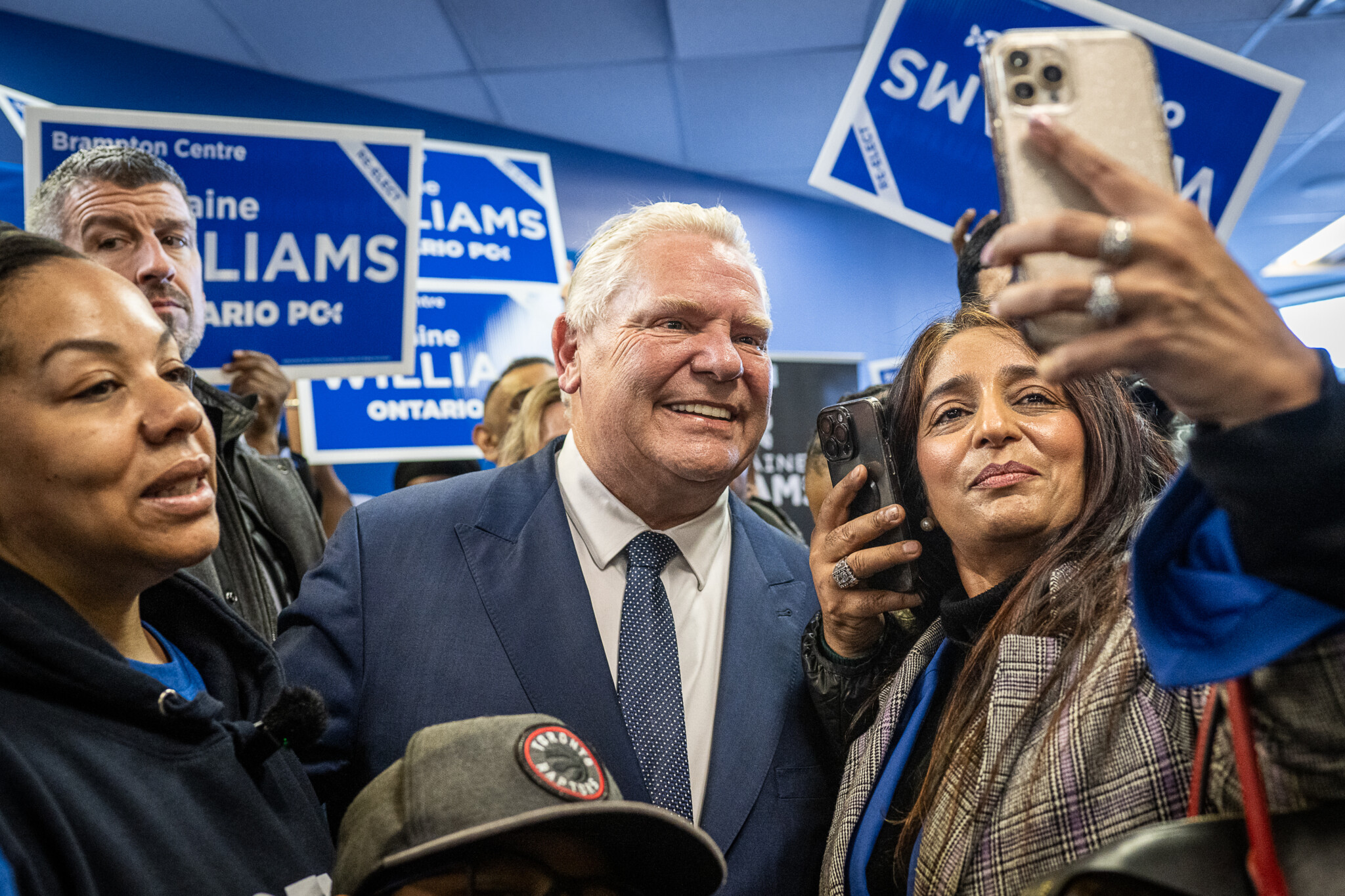In The Weekly Wrap Sean Speer, our editor-at-large, analyses for Hub subscribers the big stories shaping politics, policy, and the economy in the week that was.
What’s the point of winning a mandate if you don’t do anything with it?
There are different ways to measure one’s political legacy. Longevity is of course a key one. According to this measure, Doug Ford is one of the most successful politicians in modern Canadian history.
His third consecutive majority win this week is the first in Ontario since 1959 and now puts him among a select group of provincial leaders including Bill Davis, Peter Lougheed, and Gordon Campbell. That his party’s seat count has remained steady and its share of the popular vote has actually increased over the three elections is particularly impressive.
Ford’s broad personal appeal and wide voter coalition—including urban, suburban, and rural, rich and poor, and capital and labour—has remade the Ontario Progressive Conservative Party into an electoral machine.
Yet as genuinely impressive as his ballot-box success has been, the biggest criticism of Ford has been that winning has become an end in itself. His governing record is otherwise marked by a mix of inaction and triviality. There are no signature policies or lasting accomplishments.
The Ford government’s mere existence seems like the entire point. The whole thing reminds me of the line in the movie Animal House: “But sir, Delta Tau Chi has a long tradition of existence both to its members and the community at large.”
Maybe this time will be different. The government has made interesting nods to nuclear energy. It has finally stiffened its spine on ridding the province of the excesses of the harm reduction model for drug addiction. And during the campaign, the premier signaled far greater ambition on interprovincial trade barriers than he’s shown in the past.
One can hope that the combination of Trump’s economic threat and a third majority mandate expands the window of policy reforms that Ford and his government are prepared to consider. It should seize on its broad public support and weak political opposition. Now would be the moment to tackle big issues like education and health care that the government has previously passed on.
If it does, Ford has the opportunity to build a policy legacy that matches his already solidified electoral legacy. If it doesn’t, his political epitaph will read: he won but for what?
Canada desperately needs its own DOGE
There has been a lot of anti-DOGE commentary in Canada in recent days. Some of it raises legitimate issues—including its reporting requirements to Congress or the limits of relying on external advisers—with the Elon Musk-led exercise. But much of it just amounts to typical left-wing defences of government bureaucracy and high public spending.
The process is unorthodox and Musk himself can be a lightning rod these days, but Canadian policy and political observers shouldn’t be instinctively opposed to it. One can argue that Canada’s experience in the 1990s with Program Review was a more sophisticated and evidence-based version of DOGE while still recognizing that the latter incorporates ideas, issues, and technologies that represent useful improvements.









